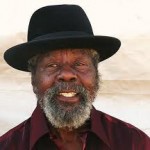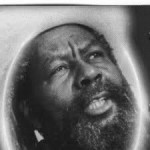By Roy Black—
Last week’s Music Diaries focused on the important role that deejay Dennis Alcapone played in keeping the Jamaican Diaspora connected with the Jamaican authorities and fans, concerning artistes scattered abroad and, particularly, their passing. He consistently said in an interview I had with him in 2013 that deejay U-Roy was his main inspiration. Ironically, he was the first to challenge U-Roy’s dominance as a deejay with titles like Shades Of Hudson, Spanish Omega, Maca Version, Number One Station, Mosquito One, Teach The Children, Alcapone Guns Don’t Argue, and others, all between 1970 and 1971.
However, the power and influence of U-Roy, whose correct name is Ewart Beckford, remains predominant. His influence was felt as far as the United States, where he had an impact on a whole generation of toasters, boasters, and rappers. Demonstrating a style that was radically different from predecessors like Count Matchuki, Lord Comic, and King Stitt, who interjected a few phrases and shouts at convenient parts of a previously done recording, U-Roy invariably rode the pared-down instrumental track all the way through with sizzling, jive-saturated rhyming lyrics.

In no other recording is U-Roy’s magic more palpably felt than in his third release for producer Duke Reid’s Treasure Isle label. The referenced cut went by the same name as the original done by the Paragons – Wear You To The Ball. After the group sings the first two lines:
“I’m gonna wear you to the ball tonight
Put on your best dress tonight,”
The deejay then makes his extraordinary entry with:
“Did you hear what the man said, baby,
He said be your best
‘Cos this gonna be your musical test
So come to school,
Let I teach you the
musical rule
Dig me soul brother
And dig me soul sister,
Come to I
And maybe you can make it if you try.”

U-Roy’s two earlier pieces for The Duke – Wake The Town, a version of Alton Ellis’s Girl I’ve Got A Date; and Rule The Nation, on the rhythm of the Techniques’ Love Is Not A Gamble – were all number-one hits that kept chasing each other around for weeks at the top of the charts in early 1970. In the process, the deejay established the genre as a legitimate musical form and became the foundation on which many of the current-day rappers, both local and foreign, built. Other Jamaican disciples like I-Roy, Lizzy, Scotty, Big Youth, Dillinger ,and Josey Wales emerged in his wake.
The master deejay owes a lot to the skilled electronic engineer and disc-cutter Osbourne ‘King Tubby’ Ruddock, who was experimenting in the late 1960s with dub music, which involved the dropping out of the vocal track and remixing the remaining rhythm tracks to create ‘versions’.
The spaces provided by the vocal track’s absence created the perfect platform for U-Roy to interject his jive talk and toasts when King Tubby’s Hi-Fi sound played at dances, and Ruddock utilised the deejay’s talent to the max.
By the end of 1969, U-Roy had taken Tubby’s Hi-Fi to the top of the sound system heap. The association fostered the development of the whole modern DJ style.
BEGINNING OF CAREER

That same year, the deejay had a short stint with Clement Dodd’s Downbeat Sound System then began his recording career with the songs Earth’s Rightful Ruler, Orgarang, and Dynamic Fashion Way for producers Lee Perry, Bunny Lee, and Keith Hudson, respectively.
In late 1969, he followed up with Sound Of The Wise and Scandal for producer Lloyd ‘The Matador’ Daley before making his triumphant entry at Treasure Isle studios. The year 1973 saw him recording cuts for Lloyd Charmers, Glen Brown, and Alvin ‘GG’ Ranglin.
By 1978, the Jones Town-born deejay returned to, perhaps, what he loved most: the sound system business. He formed his Stur Gav HI-Fi, which became very popular in Kingston’s dancehalls during the 1980s. The set became something like a deejay academy, graduating such stalwarts as Charlie Chaplin, Josey Wales, Brigadier Jerry, and Rankin Trevor. It also had some memorable runs in the United States and the United Kingdom during that period.
In the interim, U-Roy continued to record sporadically for a number of producers up into the 1990’s, while maintaining, to this day, a busy schedule on stage shows and in the recording studios.
A Rastafarian by religion, the deejay maestro was awarded the Order of Distinction by the Jamaican Government in 2007 for his contribution to music.



You must log in to post a comment.